
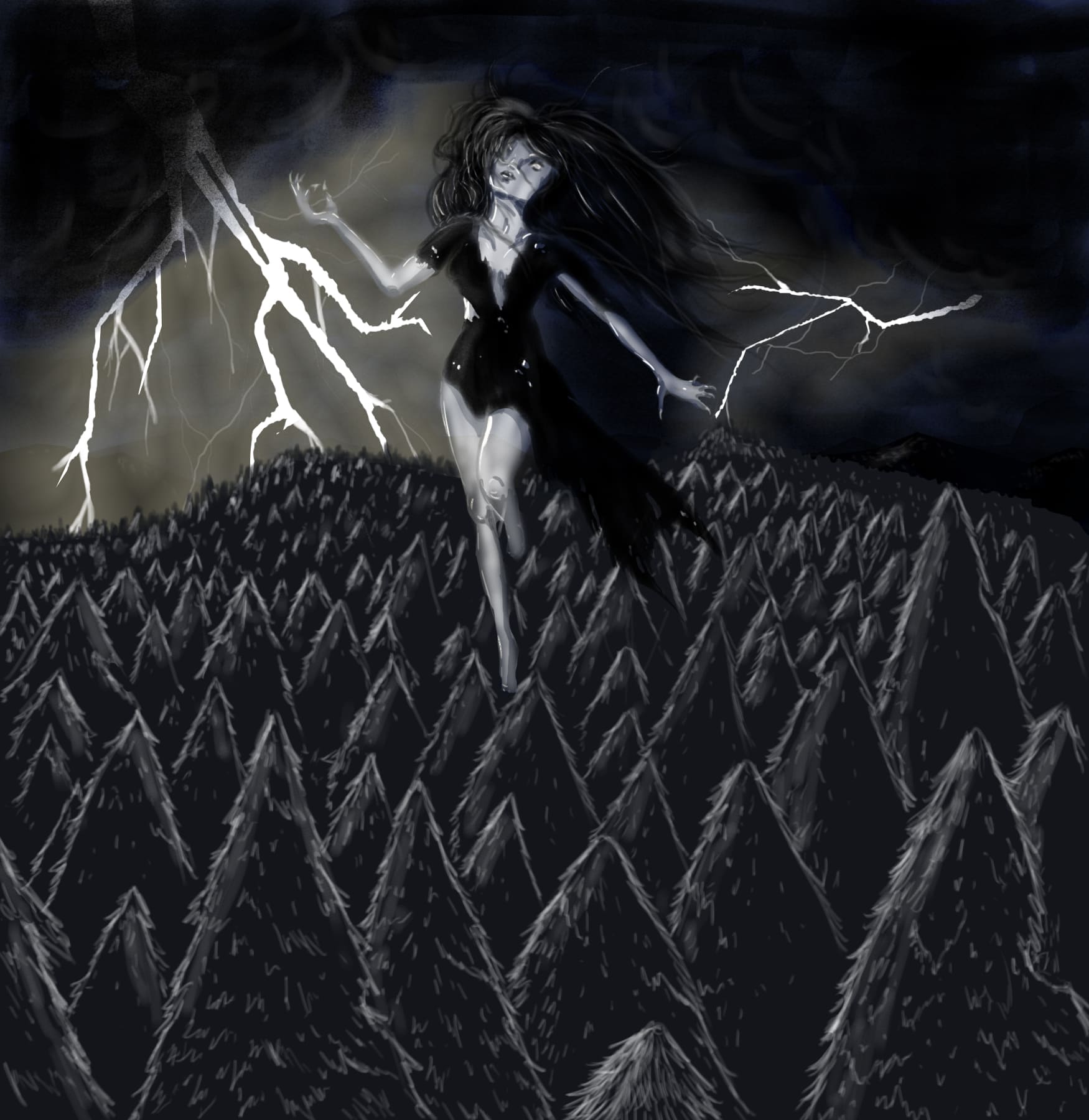
Que llueva, Que llueva
Apparently penned so children would not be afraid of the rain keeping them awake, Que IIueva has become a song sung by children when they want sweets or chocolate. It’s also still in use as a lullaby, drawing parallels with bad weather and witchcraft.
Original
Que llueva, que llueva
La Virgen de la Cueva
Los pajaritos cantan,
Las nubes se levantan.
¡Que sí, que no,
que caiga un chaparrón!
Que siga lloviendo,
Los pájaros corriendo
Florezca la pradera
Al sol de la primavera.
¡Que sí, que no,
que llueva a chaparrón,
que no me moje yo!
Translation
Let it rain, let it rain,
The witch is in the cave,
The birds sing,
The witch rises in the air.
Oh yes, oh no,
Let it pour down
Under the bed
With water and soap.
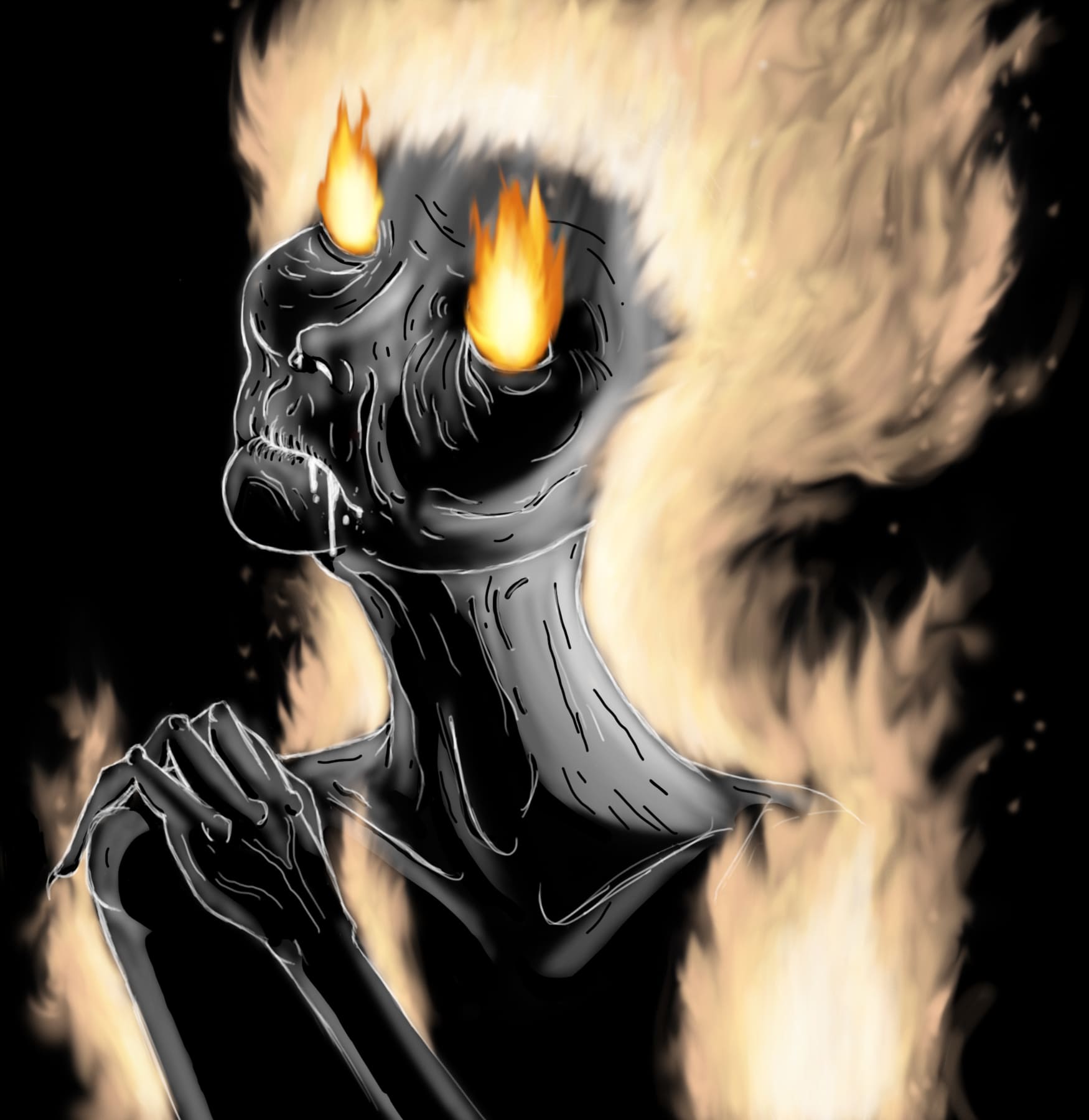
Dodo Piti Popo
The jumbie is the spirit from a person who was evil in life. The soukouyant is said to be a shapeshifter, somewhere between a terrifying old lady and a ball of fire. Best go to sleep then, little one…
Original
Dodo piti popo
Piti popo pa vle dodo.
Zambi a ke mange li
Sukugnan ke suce san.
Translation
Sleep, little baby,
The little baby doesn’t want to sleep.
The jumbie will eat him
The soukouyant will suck his blood.
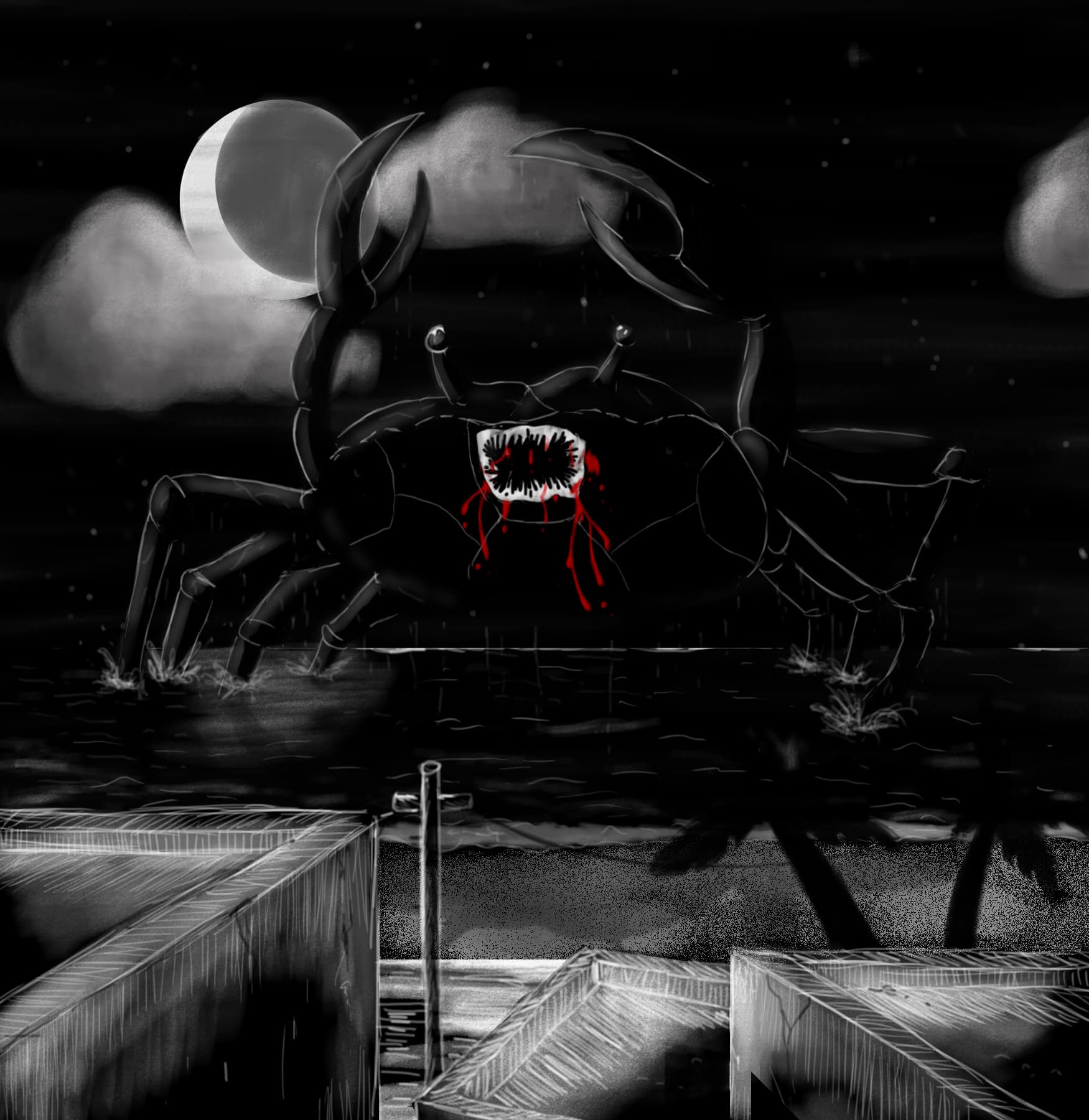
Dodo Titit
A popular lullaby in Haiti, Dodo Titit is often improvised by parents trying to get their baby off to sleep. In classic lullaby fashion, the wide-awake child is warned to get some sleep to prevent ‘the crab’ from eating them. The world has many different languages and cultures, yet Dodo Titit shows the language of lullabies to be universal.
Original
Dodo, ti titit manman l
Dodo, ti titit papa l
Si li pa dodo, krab la va manje l
Si li pa dodo, krab la va manje l
Papa ou pa la, l ale la rivyè,
Manman ou pa la, l ale chache bwa
Si ou pa dodo, krab la va manje w
Si ou pa dodo, krab la va manje w
Dodo, ti titit manman l
Dodo, ti titit papa l
Si li pa dodo, krab la va manje l
Si li pa dodo, krab la va manje l
Manman ou pa la, l ale la rivyè
Papa ou pa la, l ale peche krab
Si ou pa dodo, krab la va manje w
Si ou pa dodo, krab la va manje w
Dodo titit,
Krab nan kalalou.
Dodo titit!
Krab nan kalalou!
Translation
Sweet sleep, mommy’s little one
Sweet sleep, daddy’s little one
If you do not sleep, the crab will eat you
If you do not sleep, the crab will eat you
Your daddy’s away, he’s at the river
Your mommy’s away, getting fire wood
If you do not sleep, the crab will eat you
If you do not sleep, the crab will eat you
Sweet sleep, mommy’s little one
Sweet sleep, daddy’s little one
If you do not sleep, the crab will eat you
If you do not sleep, the crab will eat you
Your mommy’s away, she’s at the river
Your daddy’s away, he’s trapping some crabs
If you do not sleep, the crab will eat you
If you do not sleep, the crab will eat you
Sleep, little one,
Crab’s in the gumbo.
Sleep, little one!
Crab’s in the gumbo!
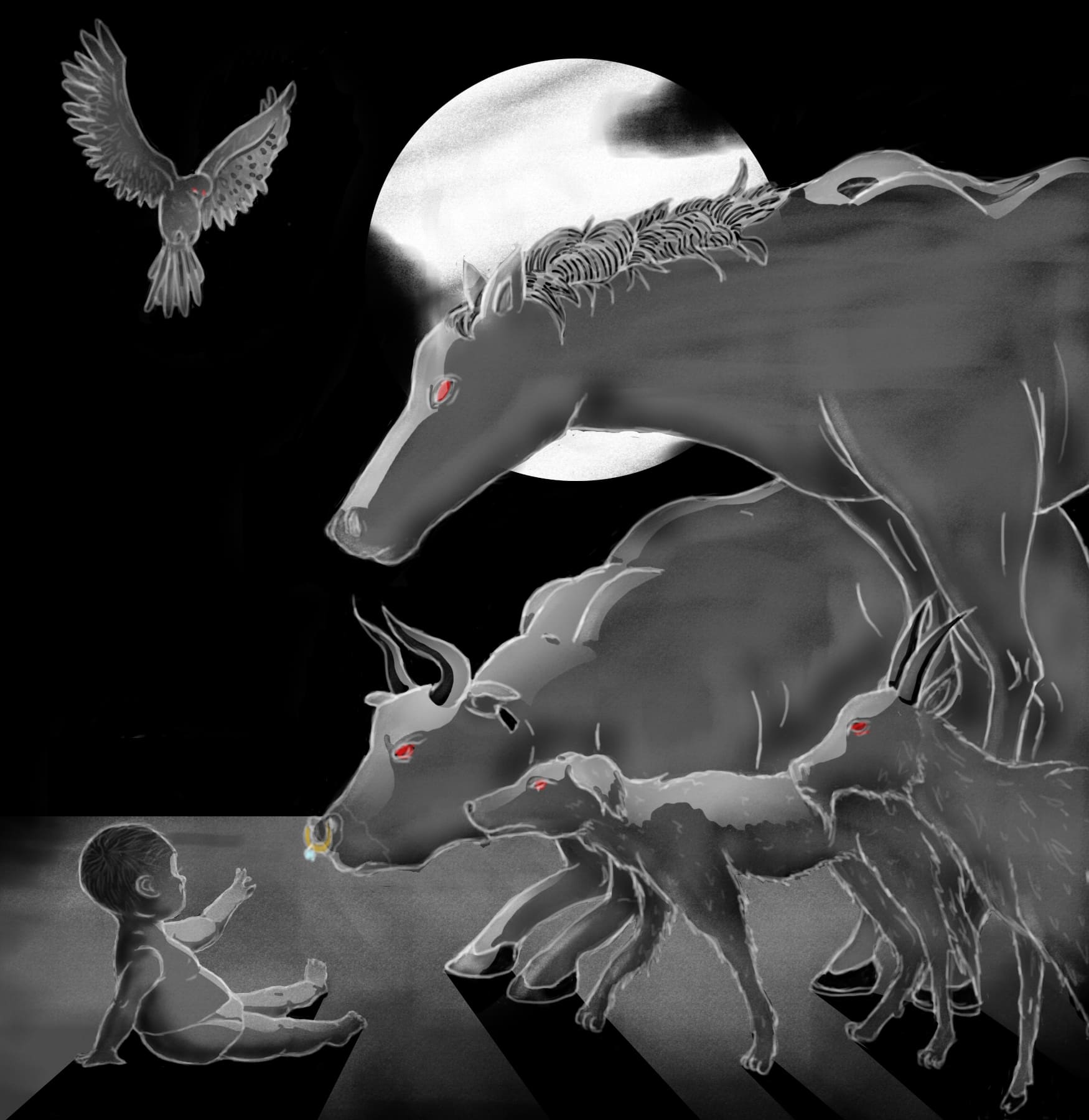
Hush, Little Baby
This pleasing little ditty comes across rather innocently. Reading between the lines it’s interesting to note that it tackles – and gives in to – one of the great parental taboos; that of bribery. The song is thus a cynical attempt to get a restless baby off to sleep by promising it a range of gifts, each better than the last. As any sleep-deprived and exhausted parent can appreciate, this is completely understandable behaviour, and from these lyrics it would appear that tired parents have thus resorted to the same desperate tactics for centuries!
Original
Hush, little baby, don't say a word.
Mama's gonna buy you a mockingbird
And if that mockingbird won't sing,
Mama's gonna buy you a diamond ring
And if that diamond ring turns brass,
Mama's gonna buy you a looking glass
And if that looking glass gets broke,
Mama's gonna buy you a billy goat
And if that billy goat won't pull,
Mama's gonna buy you a cart and bull
And if that cart and bull turn over,
Mama's gonna buy you a dog named Rover
And if that dog named Rover won't bark
Mama's gonna buy you a horse and cart
And if that horse and cart fall down,
You'll still be the sweetest little baby in town.
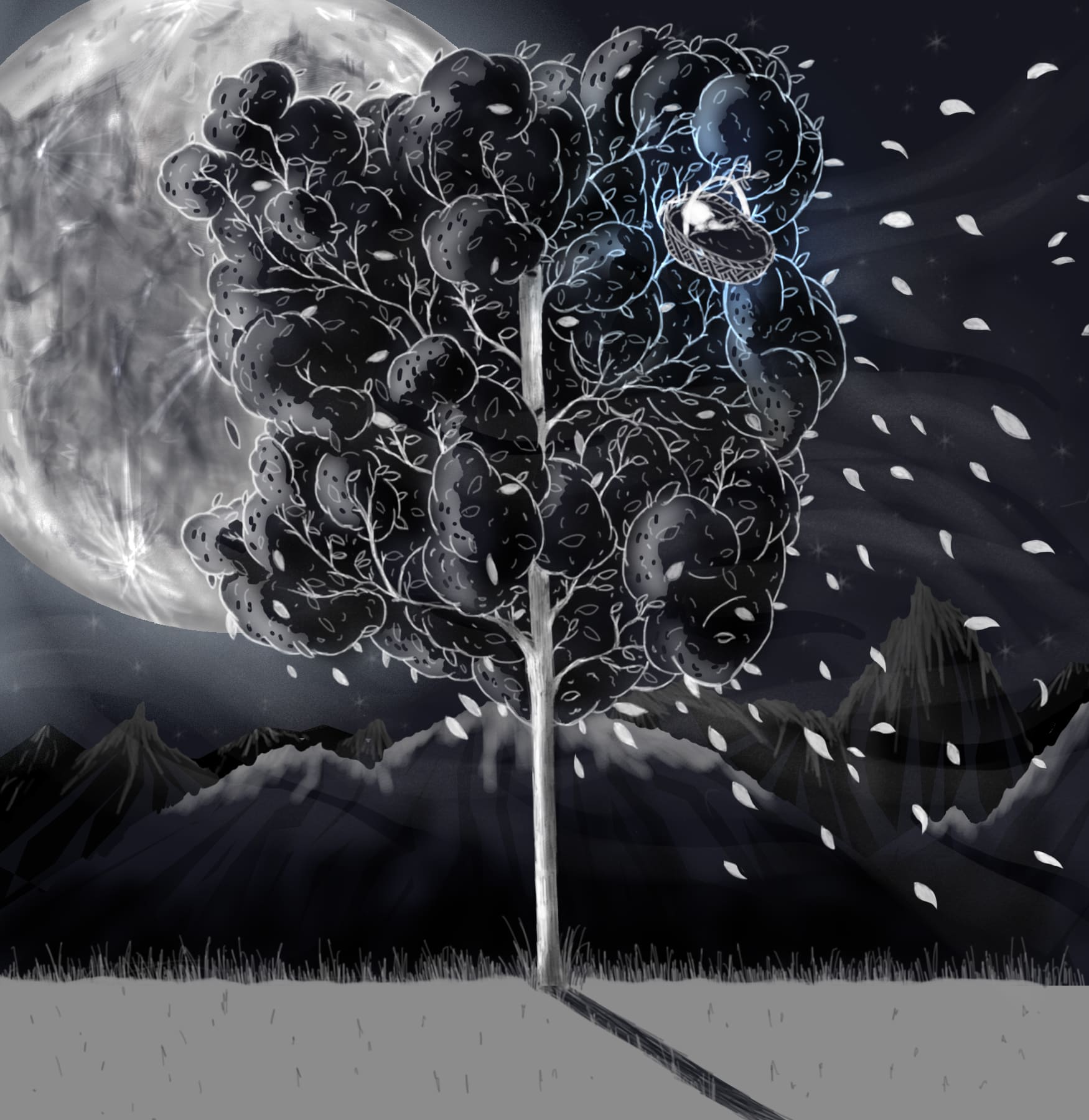
Rock-a-bye baby
The leading theory is it hails from early U.S. settlers who reported how Native Americans often rocked their babies in cradles suspended from tree branches, allowing the wind to gently sway them to sleep (or a gust to hurl them into oblivion). A competing take is that it’s actually about birth, with the tree as the mother, the wind as her contractions, the bough as her water breaking, and the “cradle and all” as the placenta.
Original
Rock-a- bye, baby
In the treetop
When the wind blows
The cradle will rock
When the bough breaks
The cradle will fall
Down will come baby
Cradle and all
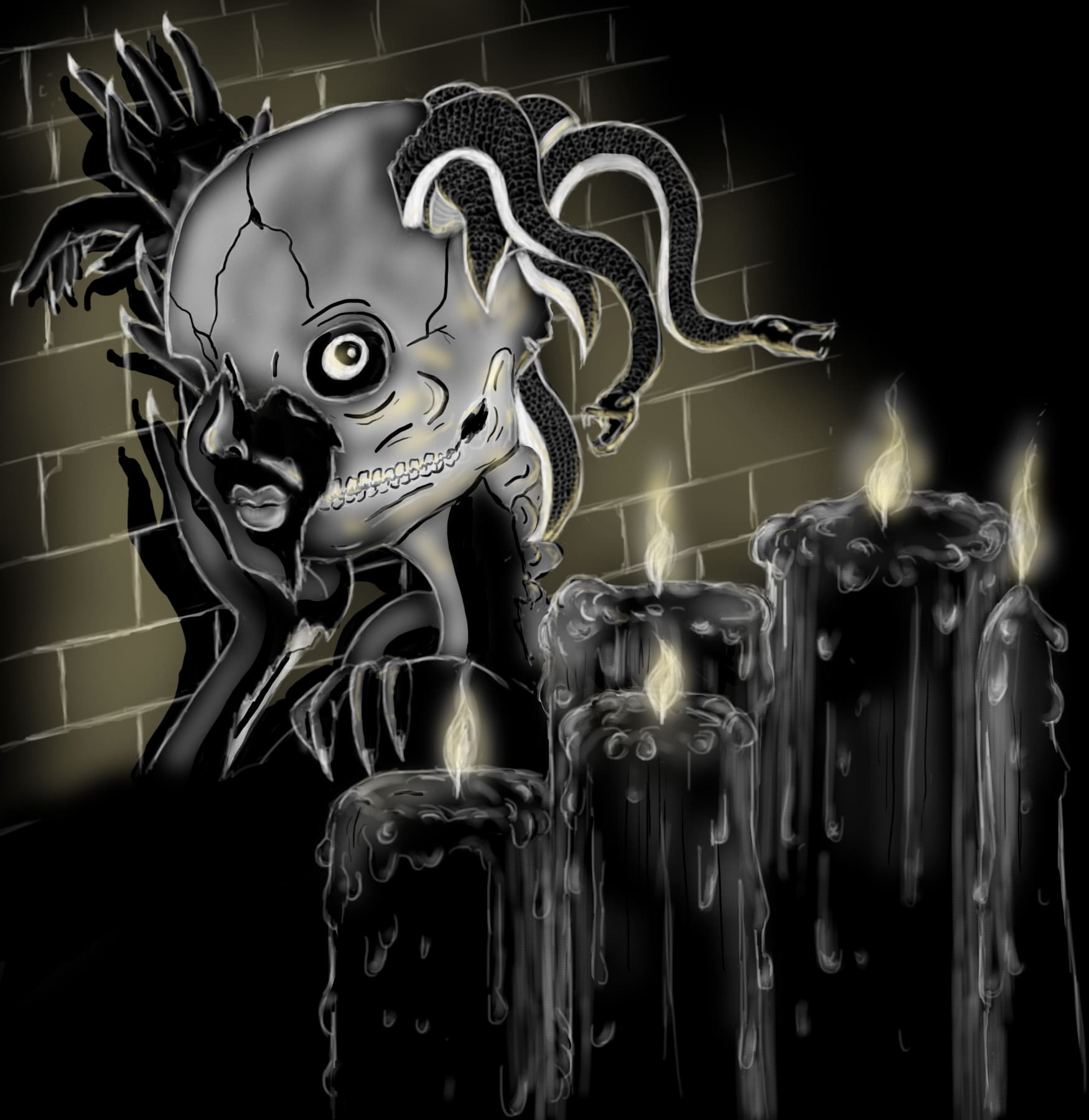
Bíum Bíum Bambaló
Icelandic band Sigur Rós created their own epic version of Bíum Bíum Bambaló, a traditional lullaby. The title of the piece is said to be the name of whatever waits outside, lurking for those who do not stay in bed.
Original
Bíum bíum bambaló,
Bambaló og dillidillidó
Vini mínum vagga ég í ró
En úti biður andlit á glugga
Þegar fjöllin fimbulhá
fylla brjóst þitt heitri þrá,
Leika skal ég langspil á
Það mun þinn hugan hugga
Bíum bíum bambaló,
Bambaló og dillidillidó
Vini mínum vagga ég í ró
En úti biður andlit á glugga
Þegar veður geisa grimm,
Grúfir yfir hríðin dimm,
Kveiki ég á kertum fimm,
Burt flæmi skammdegisskugga
Translation
Bíum bíum bambaló,
Bambaló and dillidillidó
My little friend I lull to rest
But outside, a face looms at the window
When the mighty mountains
Fill your chest with burning desire,
I will play the langspil
And soothe your mind
Bíum bíum bambaló,
Bambaló and dillidillidó
My little friend I lull to rest
But outside, a face looms at the window
When the cruel storms rage
And the dark blizzard crouches above,
I shall light five candles
And drive away the winter shadows
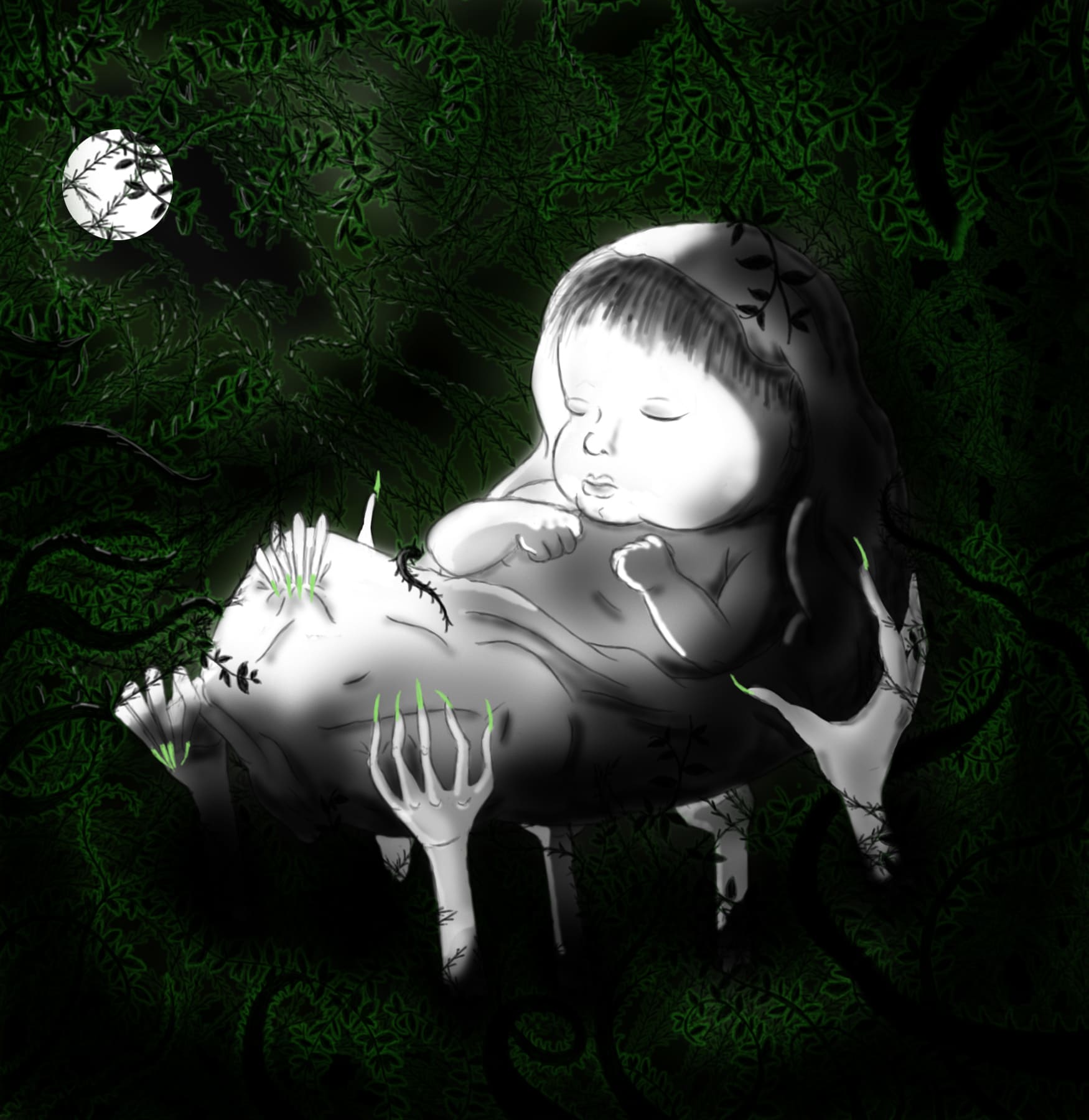
The Highland Fairy Lullaby
An exceptionally beautiful lullaby on the ears, the lyrics are quite the opposite. Although there is no big bad wolf that comes and steals the baby away, the Highland Fairy would appear to be a baby snatcher, operating whilst the parent has gone to gather fruit.
Original
Hò-bhan, hò-bhan, Goiridh òg O
Goiridh òg O, Goiridh òg O
Hò-bhan, hò-bhan, Goiridh òg O
Gu'n dh'fhalbh mo ghaoil 's gu'n dh'fhàg e mi.
Dh'fhàg mi'n seo 'na shìneadh e,
'Na shìneadh e, 'na shìneadh e;
Gu'n dh'fhàg mi'n seo 'na shìneadh e
'Nuair dh'fhalbh mi 'bhuain nam braoilegan.
O, shiubhail mi bheinn o cheann gu ceann,
Bho thaobh gu taobh, gu taobh nan allt.
O, shiubhail mi bheinn o cheann gu ceann,
Cha d'fhuair mi lorg mo chóineachan.
Fhuair mi lorg an dóbhrain duinn,
An dóbhrain duinn, an dóbhrain duinn,
Gu'n d'fhuair mi lorg an dóbhrain duinn;
'S cha d'fhuair mi lorg mo chóineachain!
Translation
I left my baby lying here,
lying here, lying here
I left my baby lying there
To go and gather blaeberries.
I found the wee brown otter's track
Otter's track, otter's track
I found the wee brown otter's track
But ne'er a trace o' my baby, O!
I found the track of the swan on the lake
Swan on the lake, swan on the lake
I found the track of the swan on the lake
But not the track of baby, O!
I found the trail of the mountain mist
Mountain mist, mountain mist
I found the trail of the mountain mist
But ne'er a trace of baby, O!
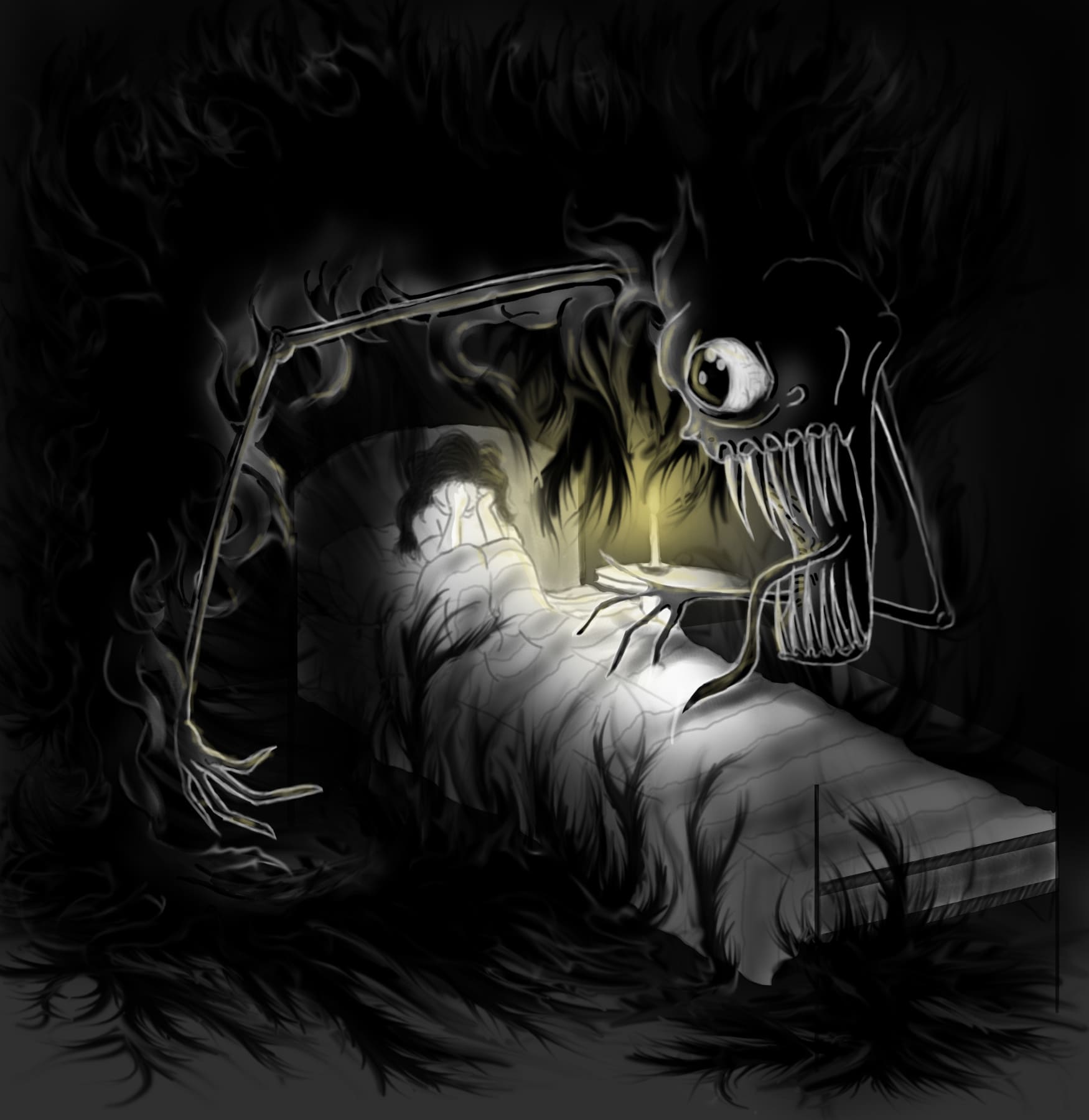
Duérmete, Mi Niño
A popular lullaby across Spain and Latin America, Duérmete, Mi Niño, gently warns a sleepless child to think twice about staying awake. If the ‘Coco’ – an undefined yet frightful creature – coming to take you away doesn’t terrify the infant into dropping off, then a second warning that they’ll be eaten might just work.
Original
Duérmete mi niño, duérmete mi amor
duérmete pedazo de mi corazón.
Este niño mío que nació de noche
quiere que lo lleve a pasear en coche.
Este niño mío que nació de día
quiere que lo lleve a la dulcería.
Duérmete mi niño, duérmete mi amor
duérmete pedazo de mi corazón.
Translation
Sleep little one
Sleep my love
Or the Coco will come and take you away.
Sleep little one
Sleep my love
Or the Coco will come and eat you up
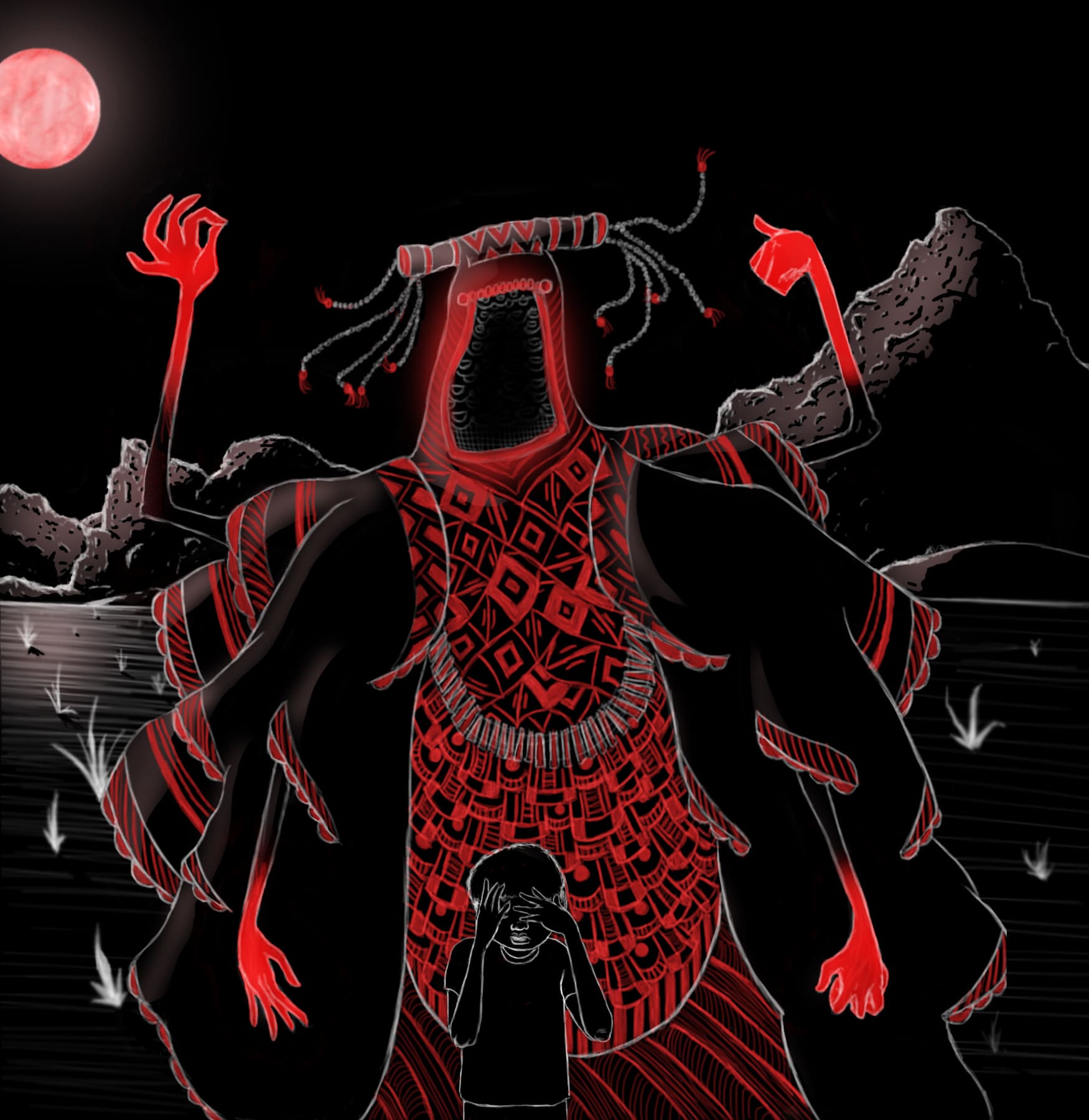
Boju Boju
Keep your eyes shut, because if you open them, something terrible will happen to you… That’s pretty much the meaning behind Boju Boju, and anyone who has struggled with a wide-awake baby will easily be able to empathise!
Original
Boju boju
O
Oloro nbo
O
Epara mo
O
Se ki nsi?
Si si sin sii
Eni to loro ba mu a pa je
O
Translation
Cover your eyes
Oh
The chief masquerader is coming
Oh
Go and hide
Oh
Should I open them?
Open, open, open them!
Whoever he finds will be killed
Oh
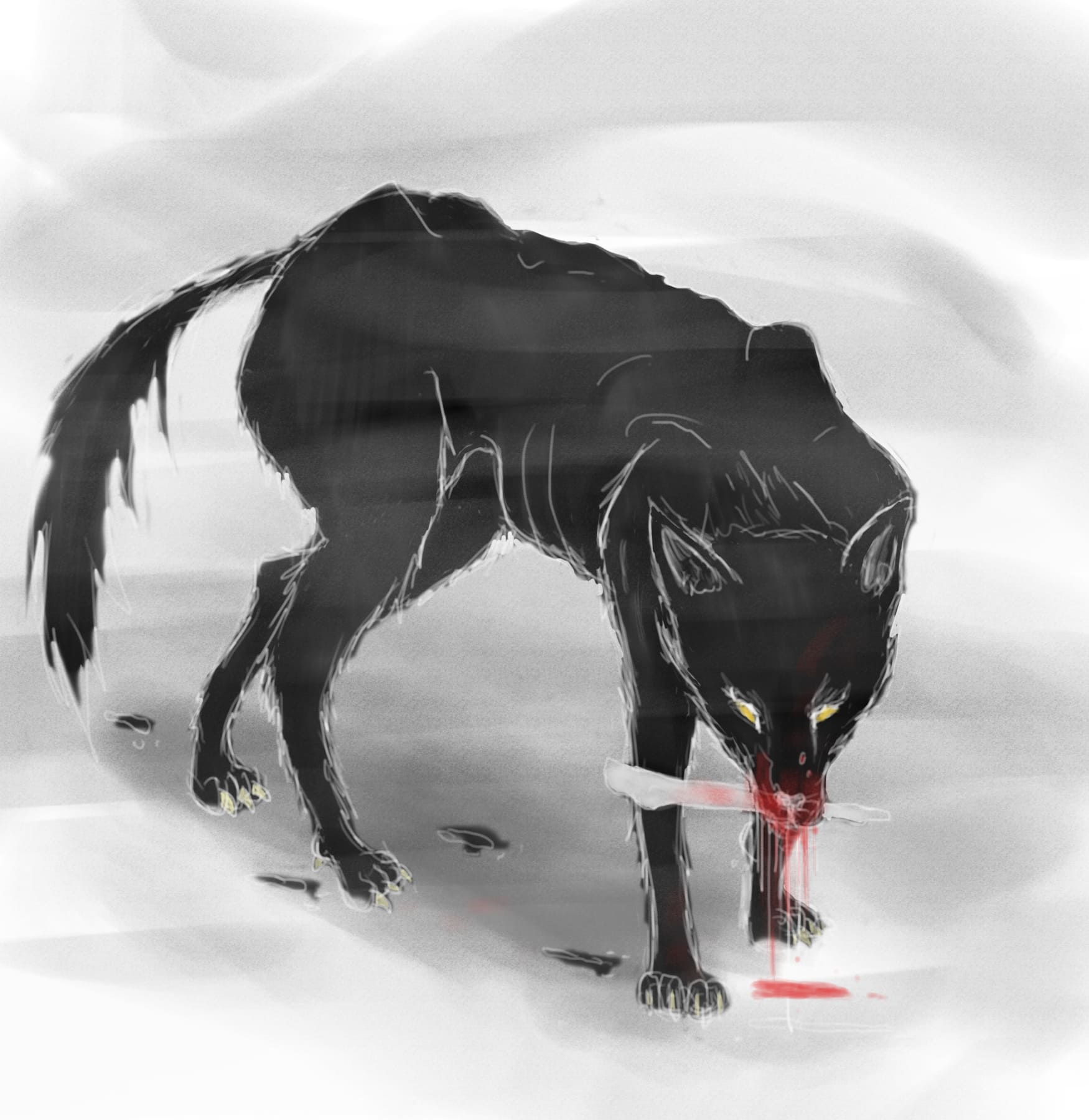
Bayu Bayushki Bayu
Ever sleep close to the edge of the bed? Those growing up in Russia and Belarus are unlikely to, having been reminded of the consequences on every sleepless night. Stay still, and stay in the middle of the bed! You have been warned…
Original
Bayou-bayoushkji- bayou,
Seedjit kotjik na kriyou,
On nje bedjin nje bahat,
Oo njevo yestj m’noho rebjat
Vcje pah lallichkum seedjatj
Kashou smasljetsum yedjatj.
Bayou-bayoushkji- bayou.
Translation
Sleep sleep sleep
Don’t lie too close to the edge of the bed
Or little grey wolf will come
And grab you by the flank,
Drag you into the woods
Underneath the willow root.
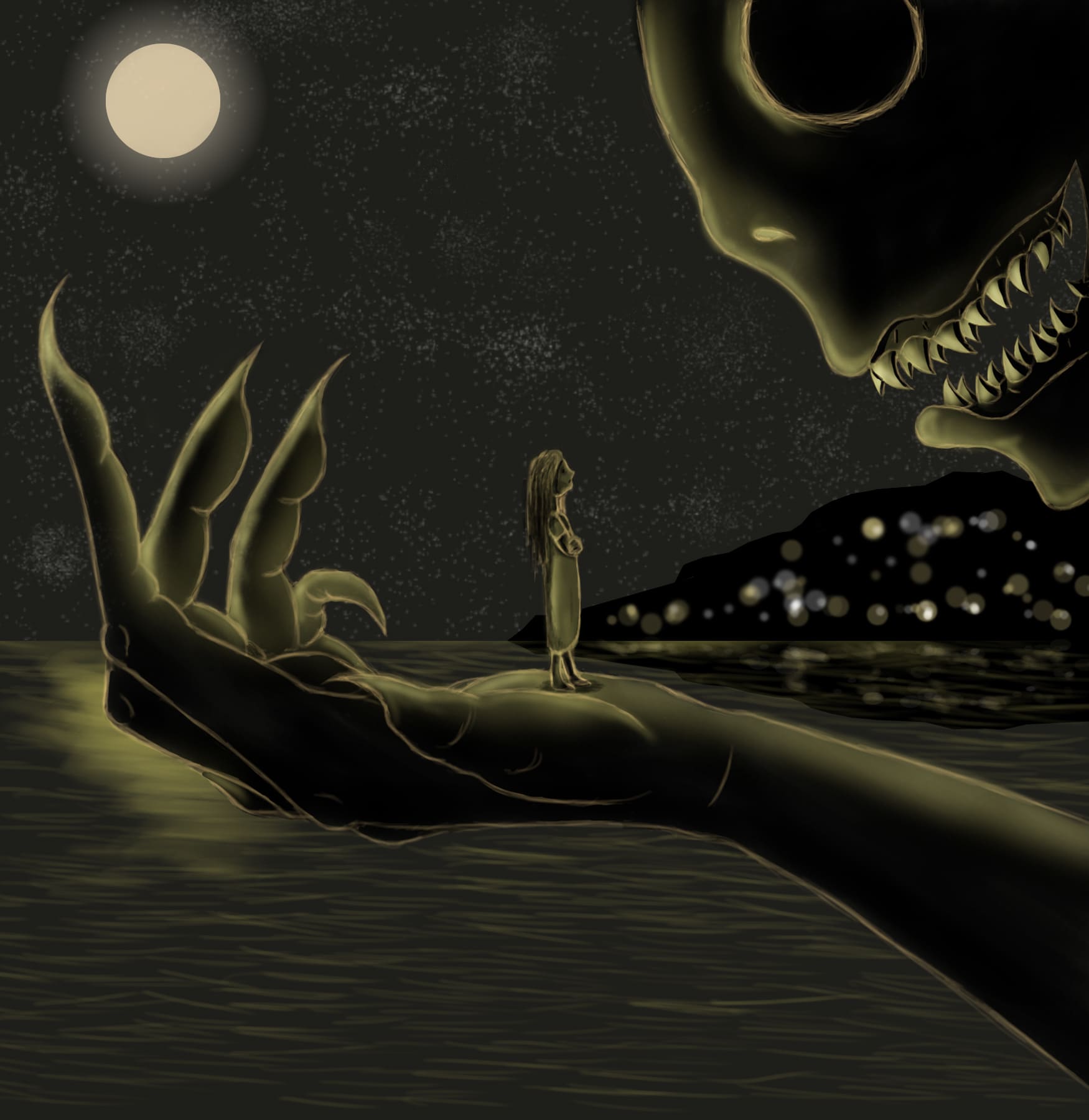
Lelo Ledung
From the island of Java in Indonesia, Lelo Ledung tells of a giant in search of crying children. Best to keep quiet and fall asleep, perhaps…
Original
Tak lelo…lelo…lelo ledung…
Cep menenga, aja pijer nangis
Anakku sing ayu rupane
Yen nangis ndak ilang ayune
Tak gadhang isa urip mulya
Dadiyo wanita utama
Ngluhurke asmane wong tuwo
Dadiyo pendekaring bangsa….
Cep menenga…anakku…
Kae.. wulane ndadari
Kayak ndas buta nggilani
Lagi nggoleki cah nangis..
Tak lelo…lelo…lelo ledung…
Cep menenga, anakku cah ayu
Ta' emban, slendang batik kawung
Yen nangis medhak nggawe bingung.
Translation
Tak lelo…lelo…lelo ledung…
Please hush, don't keep on crying
My child with a lovely face
If you cry, you won't look as beautiful.
I pray that you can live honourably
Be a woman of high importance
Bring honour to your parents' name
Be a warrior of your country….
Please hush…my child…
There, the moon is full,
Like the head of a scary giant
One who's looking for a crying child.
Tak lelo…lelo…lelo ledung…
Please hush, my beautiful child
I am carrying you in a sling
If you keep on crying, you'll make me nervous
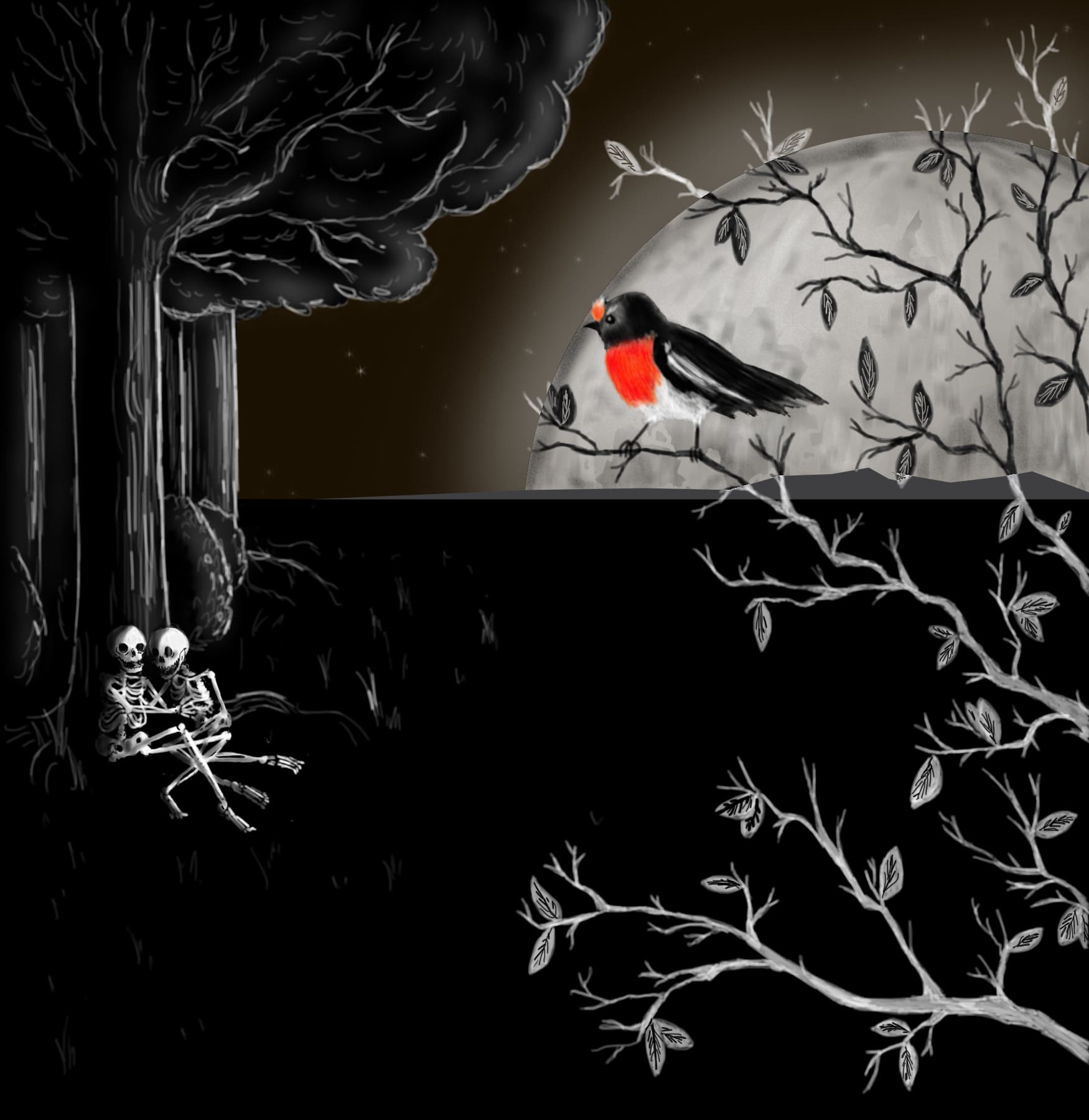
Babes in the Woods
Here’s a jolly ode to help your babies off to sleep – enchant them with a tale of two young children left to fend for themselves in a wood. And then dying.
Sleep tight!
Original
Oh, my friends don't you know
How a long time ago
There were two little children
Whose names I don't know?
They were taken away
On a cold winter's day
And left in the woods
So I heard some folks say.
And they sobbed, and they sighed
And they bitterly cried
'Til at last they grew weary
And lay down and died.
And the robins so red,
When they saw they were dead,
Took strawberry leaves
And over them spread.
Oh, babes in the woods,
Poor babes in the woods,
How sad is the story
Of the babes in the woods.